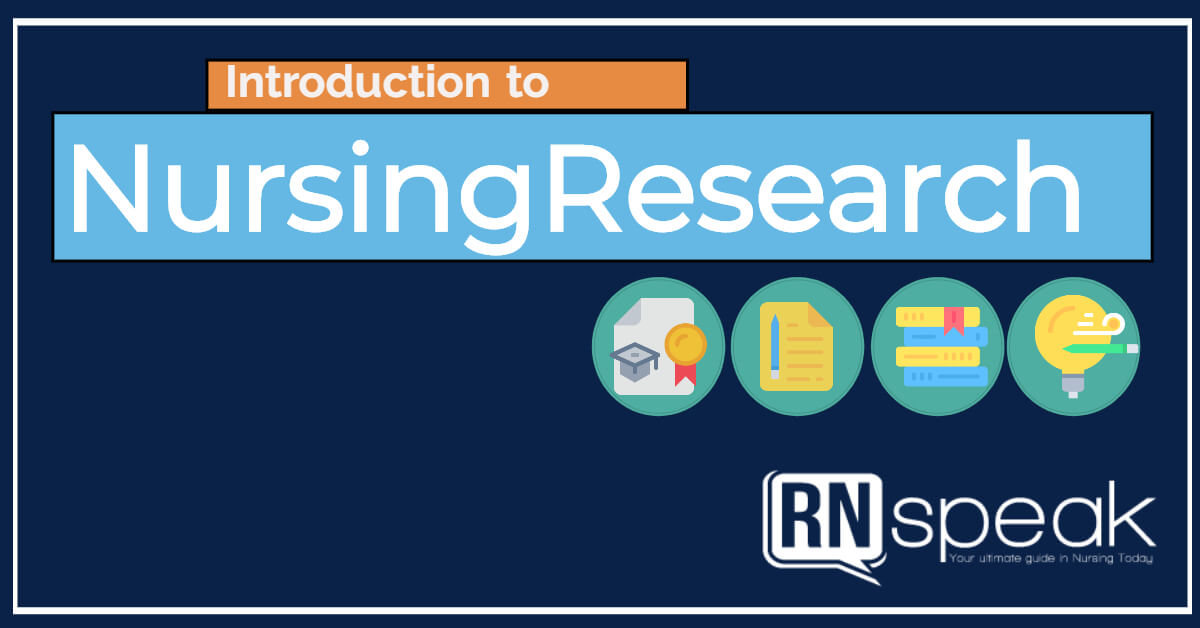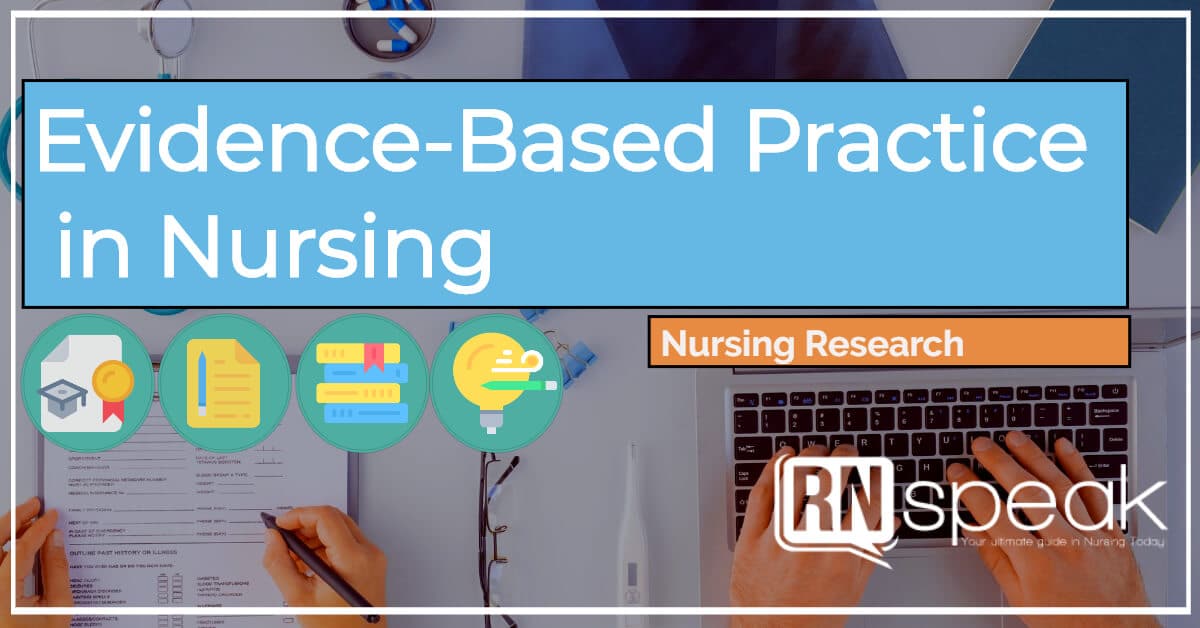The moment you ask a question and look for answers, you are simply engaging yourself into research. This “everyday research” continuously aims for the betterment of our day to day life. Our quest for change is an endless challenge to unearth knowledge, it is human nature to know more. Everybody has their innate ability to become a researcher, but only a formal research education and training can unleash that researcher within you.
Definition
Research originated from its meaning literally “to search again” or “to examine carefully”. Hence, Grove and colleagues (2015) define research as a diligent, systematic inquiry, or study that validates and refines existing knowledge to develop new knowledge. Fundamentally speaking, research is a discipline utilizing the systematic body of knowledge and organized methods of inquiry to answer questions and solve problems, which aims to gain knowledge for the benefit of the people (Polit & Beck, 2018).
The research applied to nursing practice, describes as the systematic inquiry designed to develop trustworthy evidence on issues of importance to the nursing profession such as nursing practice, administration and informatics (Polit & Beck, 2018). Nieswiadomy & Bailey (2018), refers to nursing research as a systematic objective process of analyzing phenomena of importance to nursing which includes practice, education and administration. Grove, et al. (2015) elaborates nursing research as a scientific process that validates and refines existing knowledge to generates new knowledge through planning, organization, and persistence focuses on nursing education, administration, health care delivery, characteristics of nurses, and their roles.
Nursing research directly or indirectly influences clinical nursing practice. Primarily, clinical nursing research rooted in the questions and problems encountered from our day to day living to acclimate the changing needs of the people it serves.
Importance of Research in the Nursing Profession
The Northeastern State University in Oklahoma (2020) stated three major significance of research in the nursing profession, such as:
1. Information Literacy
Information literacy is the comprehension to understand information and the ability to transform it into a new knowledge of higher-level which you can utilize for development and improvement. This skill is not only reading comprehension but the ability to effectively process information for interpretation, study comparison, analyze results and think critically which can aid nurses on their problem-solving and decision-making competencies.
2. Teaching Information Literacy
Teaching information literacy will bring the academe into a higher level of learning using different modes of teaching and instructions. Research is being utilized by nursing schools to strengthen research departments in helping the students to be more competent in acquiring information literacy. Problem-based learning modality allows the students to develop critical thinking skills and problem-solving ability when they are challenged clinically to prepare them for their practice in the future.
3. Evidence-Based Practice
Research will correct misconceptions, improve patient care, upgrade the health care system, revamp health workers working condition and develop new treatment protocols and clinical pathways for safe and efficient nursing practice. The safe and efficient nursing practice must have a scientific basis that undergoes rigid study and experimentation. A safe practice must be the results of research proving its safety and efficacy to establish best practices in the profession.
As research adapts to the changing needs of the society in terms of health care delivery, health care environment, patient care needs, population health demands and health-related regulations of the government — breakthroughs make the practice continuously evolves. Research brings constant change, forcing nurses to keep themselves abreast to changes for them to stay in their field. Research brings no room for stagnation in the practice.
History of Nursing Research
Research burgeon along with the beginning of nursing in the 1800s (Mackey & Bassendowski, 2017). It was Florence Nightingale who pioneered evidence-based practice corroborated by her documentation on notes on nursing. Advances in technology are the major catapult of nursing research to evolve as the nursing discipline makes headway in the medical community.
A long time had passed before the nursing community put the research activity into cognizance. In the year 1950’s, Division of Nursing Resources started to fund research studies with the first journal publication of Nursing Research in 1952 and put up several research centers around the United States of America which eventually leads to the construction of National Center for Nursing Research in 1985 (Tappen, 2016).
After the introduction of research into publications, nurses were involved in the development of models, conceptual frameworks, and theories to guide nursing practice. It was late 1960s and 1970s when nursing theorists’ were born, with the first publication of nursing theorists’ work and related researches on the journal Advances in Nursing Science in 1978 (Grove, et al., 2015). The nursing theorists’ work gives rise to a clear pathway for future nursing researches.
The 1990s became the era of journals for nurse researchers wherein speciality journals launched to publish research articles, and evidence-based practice was integrated to nursing (Polit & Beck, 2018).
Roles of Nurses’ in Research
The prestige of being a researcher coined around with academics as work of the intelligent mind. However, the wide acceptance of the evidence-based practice in the nursing profession seemingly attracts an increasing demand for nurse practitioners conducting research studies to improve patient care and working condition.
Polit & Beck (2018) elaborated the continuum of research participation of nurses in an evidence-based practice environment that includes research consumers and research producers. They refer nursing research consumers or users for the nurses who read studies and stay up-to-date on the latest researches to apply it in their practice. On the other hand, are the producers of nursing research who diligently and patiently formulate, design and undertake research studies.
Conversely, Polit & Beck (2018) added the roles of the contributors on the continuum of research activities such as:
- Contribute an idea for a clinical inquiry
- Assist in collecting research information
- Offer advice to clients about participating in a study
- Search for research evidence
- Discuss the implications of a study
A research team is a group of researchers in association with a research project. Nieswiadomy & Bailey (2018) enumerates the composition of a research team wherein nurses can assume many roles, and these include:
- Principal investigator
- Member of a research team
- Identifier of researchable problems
- Evaluator of research findings
- User of research findings
- Patient/client advocate during studies
- Subject/participant in studies
Participation of all nurses in different research activities plays a vital role in generating a scientific knowledge basis in an evidence-based practice environment. Research will free the nurses from the limitations set by the four-cornered room of the hospital. It will open new doors of opportunities to go beyond our traditional scope. Reaching beyond your reach is the “art of knowing more”.
References
- Grove, S.K., Gray, J.R. & Burns, N. (2015). Understanding Nursing Research: Building An Evidence-Based Practice, 6thMissouri: Elsevier Saunders.
- Polit, D.F. & Beck, C.T. (2018). Essentials of Nursing Research: Appraising Evidence for Nursing Practice, 9th Wolters Kluwer.
- Nieswiadomy, R. & Bailey, C. (2018). Foundations of Nursing Research, 7th New York: Pearson Education, Inc.
- Northeastern State University, Oklahoma. (2020). Why do nurses need research? Retrieved on 13 September 2020 from https://nursingonline.nsuok.edu/articles/rnbsn/why-nurses-need-research.aspx#:~:text=It%20is%20important%20for%20nurses,to%20develop%20their%20own%20conclusions.
- Mackey, A. & Bassendowski, S. (2017). The History of Evidence-Based Practice in Nursing Education and Practice. Journal of Professional Nursing, 33(1), 51-55. https://doi.org/10.1016/j.profnurs.2016.05.009
- Tappen, R. (2016). Advanced Nursing Research: From Theory to Practice, 2nd ed. Jones & Bartlett Learning.




